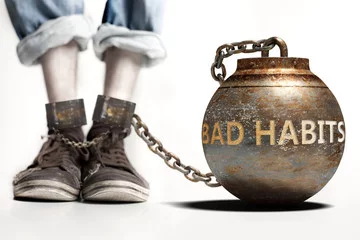An Orlando Divorce Attorney’s Dish on Destructive Marriage Behaviors
This question is posed to us in many ways, including:
-
How do you ruin a marriage?
-
What is a toxic marriage?
-
Can lack of intimacy ruin a marriage?
-
What are the signs of a failing marriage?
-
What is the biggest reason for divorce?
-
What are the most common destructive marriage behaviors?
If you want to know why marriages end, don’t ask married people.
Don’t ask divorced people, either. They’ll only have one answer: their own. If you want the big picture, ask divorce lawyers. We have experienced, along with our clients, every conceivable circumstance that ultimately resulted in “irreconcilable differences.”
So, we have noticed a few things over the years.
While we are not licensed therapists able to counsel couples on healthy relationships, we are in a unique position to understand unhealthy relationships. We work hand in hand with them every day. Healthy, strong, happy marriages thankfully do not find their way into our offices.
We would like to give you some insight into the bad habits we have observed in divorcing couples.
Related content – How to navigate your first year after divorce
We are all familiar with the “statistic” that half of marriages end in divorce. If you want to be in the half of marriages that do not end in divorce (e.g., that succeed), become aware of some crucial dynamics in your relationship and avoid destructive marriage behaviors that we will touch on here.
Then, you can foster the healthy habits of happy couples and break the bad ones they do not have.
Heads or Tails: Is It True that Half of Marriages Fail?
Not really. Since its inception, this has always been a misleading statistic. at best, based on a faulty premise that had highly questionable validity even then. The statistic originates from a CDC study of 1000 people back in the 1970s taken from an undefined segment of the U.S. population. [1]
A reliable statistic for the true percentage of marriages in the world that end in divorce cannot be obtained from the unempirical data used in this isolated study.
The people getting divorced today are not the same ones who were getting married in the 1970s. Variances across generations, genders, age groups, and geographics were not taken into consideration in this antiquated CDC study.
What we do know is that divorce rates are actually decreasing. Here are a few reasons why:
- The divorce rate has been declining since the 1980s as younger generations are getting smarter about their marriage choices.
- Women initiate almost 70% of divorces. [2]
- An increase in children born out of wedlock suggests that younger people are avoiding so-called “shotgun weddings.”
- Cohabitation before marriage is on the rise.
- A large percentage of Gen Y, Millennials, and Gen Z consider their “first” marriage a toss-away for the purpose of having children during their healthiest birthing years. [needs a citation]
Even so, these are sociological factors. But what about the interpersonal habits of the couple?
Let’s consider those now:

How do you ruin a marriage
Destructive Marriage Behavior You Don’t See in Happy Couples
Insights from an Orlando Divorce Attorney
- Scorekeeping.
At Morgan Divorce Law Firm, we have seen our clients exhibit the tendency to “keep score.” If you tell me your spouse is never happy when your parents come to visit, the last time your spouse did the laundry, or rattle off the exact number of times your spouse initiated/refused sex, you are keeping score.
It’s the kind of thing that can happen by simply being human, which is not at all abnormal. But like many other trivial things in life, when it happens too frequently, I understand it can become a problem in your marriage.
Scorekeeping most often seems to occur around:
- Division of household chores and labor, such as dishes, laundry, mowing the lawn, and the like.
- Relative financial stability, or how much one partner earns in relation to the other.
- Spending habits and other economic concerns.
- Who initiates or consents to intimacy and how often.
- “Quality time” spent together or apart.
If scorekeeping is sporadic – if it comes and goes like the proverbial wind – rather than being habitual, it will likely never lead you on the path to our offices.
But habits that consistently annoy you or your spouse can lead to resentment, communication issues, misunderstandings, and – you guessed it – irreconcilable differences.
Your take-away on this point? Focus on keeping score about the positive things your spouse does that you love. As marriage specialists and divorce attorneys will tell you, not communicating about repeated habits that make you feel resentful can and will destroy a marriage. [4]
2. Competing with one another.
The drive to outshine one another is another toxic habit we’ve seen one too many times.
It happens most often when one partner perceives themselves as being less successful than their spouse, and it can happen in the healthiest of relationships. The urge to win or excel is drilled into the core of many of us, understandably because in almost every other context, it is an asset in life.…
…. But can it wear on the bonds of your marriage? You betcha.
Toxic couples are less likely to cheer the success of their spouses. They are prone to resent the more successful spouse, or in turn try to one-up them. Whether consciously or subconsciously, they see their spouse as their competition. Or worse yet, they’re opposition.
This can manifest in many ways, such as:
- Financial competition: One partner seeking to be “the breadwinner,” or to earn more money than their spouse.
- Parental Competition: trying to be the “favorite” parent or force your spouse into the role of disciplinarian.
- Attention-seeking competition.
There are no limits to the ways competitive jealousy can wreak havoc on your marriage. It can be a difficult thing to avoid. If you find it is happening in your relationship, have an open and honest discussion about it.
Discuss from where it may be originating, and re-focus on the very real fact that if your spouse succeeds, you both succeed. An experienced marriage counselor can help you work through these issues if it is complicated or deep-seeded in nature.
3. Letting emotions control the relationship.
Emotions are human, normal, and can be quite wonderful.
But toxic emotions, if left unchecked, can be down-right dangerous to your marriage. That is why emotional intelligence is a key ingredient in a healthy marriage.
Working as Orlando divorce attorneys, as well as mediators, we have helped couples embrace the emotions of their spouse in a different and healthier way.
What does an emotionally healthy couple look like?
Healthy coping skills are required in a good marriage. It is inevitable in the course of life that feelings of loneliness, sadness, resentment, and anger will at times raise their ugly heads when you are sharing your life with another person.
What is important is not whether you experience troubles that create emotions. That is inevitable. What matters is how you deal with them together as a unified force.
This crucial distinction separates couples who remain happily married from the couples who eventually need the services of divorce lawyers.
At a minimum, healthy couples have to:
- Accept the inevitability of negative emotions. Metaphorical rainy days come with the territory.
- Own their negative emotions and talk about them together.
- Embrace the discomfort of admitting to each other things are not okay.
- View the problem not as Spouse versus Spouse, but rather as Couple versus Problem.
- Not be afraid of doing the work required to examine their feelings in an honest and healthy way when flammable emotions are adding fuel to a fire.
4. Manipulation
There are healthy and unhealthy ways to deal with problems or to move the relationship in a desired direction. Healthy couples do not engage in deception, manipulation, or passive-aggressive controlling tactics.

How do you ruin a marriage? Destructive Marriage Behaviors.
What does manipulation look like in a marriage?
It isn’t always obvious. Even couples making an honest attempt to be authentic and transparent with one another can still be manipulative.
Covert behavior is not always conscious – and it’s often an innocent attempt to avoid a direct confrontation or to get one’s way on a minor point. You may not mean to take advantage of your partner, but believing you are being “strategic” is often just a variation of being manipulative.
This is key: manipulation does not have to be intentional to be destructive.
Some common examples of Destructive Marriage Behaviors in a marriage include:
- Guilt – using emotional blackmail to get what you want.
- Martyrdom – playing the victim card to create a sense of obligation or get what you want.
- Avoiding your mistakes and trying to deflect the blow when confessing them, perhaps in fear of criticism, disappointment, or negative consequences from your spouse.
- Exaggerating or embellishing reasons for your behavior in order to create sympathy – usually in order to legitimize something you’ve done that might upset your partner.
- Overreacting to heighten drama, which is a common way to get a partner to back down if they hate scenes or drama.
- Gaslighting, using phrases like “Stop acting crazy,” or “You’re taking this out of context” to destabilize your partner’s sense of whether they’ve been wronged.
- Gift-giving to make up for shortcomings or arguments, or when it’s actually something you wanted.
- Flimsy or feigned excuses for things you don’t want to do, or to avoid disappointing your partner. This could include excuses like “I have a headache,” or “I have been so stressed at work,” or “It’s been a bad day and I forgot.”
- Bad-faith bargaining, such as saying you want a new house when all you really want is an updated kitchen and a patio
- Hiding a wrong you’ve done, in order to try and fix it before your partner finds out.
This is how easily you can fall into the trap of being manipulative. Resorting to these behaviors usually implies you are not confident enough in yourself or your partner to be open and direct. Take time to explore the ideas of whether these behaviors are based on hidden fears or are the result of buried childhood trauma.
Being open about your fears can help you avoid being manipulative in your marriage. Happy couples will find that avoiding covert tactics in their relationship can lead to a deeper, stronger kind of love.
5. Holding onto Grudges.
Grudges are a complicated topic! I don’t claim to know everything about them.
However, I do know grudges can impact your relationship if you hold onto them unduly and do not discuss them with your spouse. I have seen grudges lead to a downward spiral in many marriages.
I have also seen the opposite can be true.
Here’s why.

Grudges cause the offended spouse to punish the offending spouse over and over again.
You will let your partner down sometimes. None of us are perfect, and therefore, it is inevitable that, when you spend years with another human, at some point you will both hurt one another. You will make mistakes, and so will your spouse.
Healthy couples learn to forgive, to apologize, and to not hold grudges. Punishing one another by dredging up old hurts and wounds is a common feature of toxic marriages. Grudges are a bitter poison which eventually can leach down to the roots of your romantic bond.
If you commit to being in a healthy and happy marriage, then you should also commit to releasing the residue of a grudge once the topic has been acknowledged, faced, and resolved by you both.
In other words, once dealt with, put the issue to bed for good. That means forever.
On the other hand …
Be Fair but Firm When You Forgive
Forgiveness, when given too soon or without consequences, can be perceived as a weakness by some people. [5] If your spouse falls into this category of people, untailored forgiveness can lead to a repeat of your spouse’s bad behavior.
If given too freely, it can also lead to a lack of respect for you.
While relationship specialists, religious leaders, and divorce lawyers like me preach the benefits of forgiveness, I also believe forgiveness should sometimes come with some repercussions and/or conditions.
First, take a look at the gravity of the offense. Is the rift about not adding fabric softener to the laundry during the wash cycle, or did you just learn your spouse is having an affair?
Second, take a look at how the offending behavior came to light. If you just learned your spouse is having an affair, for example, did they confess or get caught red-handed?
(See my article “5 Reasons Why Cheating Might Not be the Death of Your Marriage.”)
If the behavior is severely out of acceptable boundaries, your forgiveness should come with some repercussions (such as marital counseling or temporary separation for instance), followed by some firm but fair conditions (such as the clear expectation the conduct will not occur again in the future).
Communication barriers
Many couples fail because they simply cannot figure out how to emotionally reach one another. As Orlando divorce attorneys, one of the services we provide is divorce mediation. With our help and the help of qualified mental health experts with whom we frequently collaborate, we will work to create channels of communication between the two of you.
Of course, if that is what is happening in our office, we are helping spouses communicate their needs during a dissolution of their marriage.
We are hopeful, however, that you develop healthy dialogue habits with your partner, while your marriage is still intact, so you never need us at all.
What are some examples of communication barriers? Here’s what you should avoid:
- Minimizing your spouse’s feelings. You will not always understand your partner’s feelings. You may sometimes find their emotions baffling or out of proportion.
That’s normal. It becomes toxic when, instead of respecting what you don’t understand, you invalidate your partner’s emotions.
- Taking each other for granted. Healthy couples regularly remind each other how lucky they feel to be with one another. Couples on the road to our offices do not.
Remember that it is important to express gratitude for your partner’s presence in your life. It is also important to feel that your partner is grateful for you.
- Complaining about each other. Complaining about your partner to friends and family on a regular basis is a toxic habit. It reveals confidential marital details secrets, which can make your partner feel vulnerable and betrayed.
It also fosters resentment within your loved ones, who will naturally start to “take sides.” Once a marriage becomes adversarial, it’s hard to un-do.
- Secret-keeping. Surprises are okay. Secrets are not okay. Marriages should have a measure of privacy, and it’s okay to want your own space.
However, when the secrets could be damaging (secret expenses, indiscretions online, hidden desires or pastimes), they’re dangerous. You do not want a ticking bomb positioned to detonate over your marriage.

Summary of Destructive Marriage Behaviors
These all-to-common bad habits can spell the death of marriage or any relationship. And we can all be guilty of these emotional mistakes, but success begins with acknowledgement of our shortcomings. Review these marriage-killers and identify which you are guilty of. Then, commit to building the strength it takes to deal with and eliminate these failures from your life to the full extent possible. Work on your emotional self while you take action to prevent the reoccurrences when you feel them coming on.
Dedication and commitment to this will, over time, lead to dramatic improvements in each relationship in your life. Take the high road even when a faced with an emotional hot button.
If you’re concerned about your marriage, speak to the experts at Morgan Divorce Law Firm. Schedule your free consultation today. If you need our help or just have questions about this article call us. The call is 100% free!
And feel free to share this article if you found it helpful.
References/Citations:
[1] Centers for Disease Control, Marriage and Divorce Data. https://www.cdc.gov/nchs/fastats/marriage-divorce.htm
[2] American Sociological Association, Women More Like Than Men to Initiate Divorces … https://www.asanet.org/sites/default/files/savvy/documents/press/pdfs/AM_2015_Rosenfeld_News_Release_FINAL.pdf
[3] NCFMR, Family Profiles: Trends in Cohabitation … 1987-2010. http://www.firelands.bgsu.edu/content/dam/BGSU/college-of-arts-and-sciences/NCFMR/documents/FP/FP-13-12.pdf
[4] Psychology Today, Scorekeeping is Destroying Your Relationship. Jeffrey Bernstein, Ph.D. https://www.psychologytoday.com/us/blog/liking-the-child-you-love/201709/3-signs-scorekeeping-is-destroying-your-relationship
[5] LiveScience, Why You Should Hold a Grudge Against Your Spouse. https://www.livescience.com/9223-hold-grudge-spouse.html
 Reviews
Reviews 
